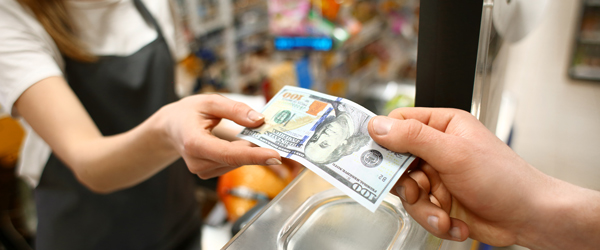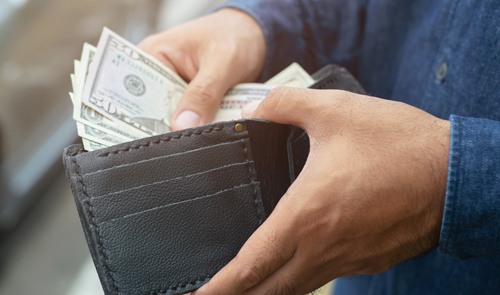What is your biggest worry? If it has anything to do with your financial health, you're not alone. 73% of Americans rank their finances as the biggest stress they currently have. Avoiding your financial issues won't help you alleviate this stress, it only makes it worse. The best way to overcome it is by facing your finances head-on and developing a plan to help you succeed. 
The New Year is the perfect time to set your financial resolutions. With simple planning techniques and a little honesty, you can straighten out your finances, develop a good budget, and save money.
Money-Saving Strategies for Your New Year

The biggest problem that most people have with their finances is that they are embarrassed. They avoid thinking about it or doing anything to correct it, and the issues they're experiencing keep snowballing. The higher your debt, the more money you need to pay in fees. If you start with a simple, honest strategy, you can gain control of your spending and savings.
Give Yourself a Waiting Period
Unless a purchase is absolutely necessary, wait at least 24 to 48 hours after you have the impulse to buy it. This is difficult especially when shopping is right at your fingertips. Take a moment and put down your phone or walk away from the computer. You may find that doing something as simple as putting down your phone or walking away from the computer will help you spend less and save more because the impulse will pass. If, after the waiting period, you still find you could benefit from the item and can truly afford it, then buy it without regrets. This is a common problem and often the reason people get into debt in the first place. Life situations can change, leaving you with more debt than you can comfortably maintain with your current income.
Create a Meal Plan

Most people start off the New Year with two primary resolutions – get fit and save money. This strategy gives you the benefit of both. Meal planning is not only good for your waistline, but it’s also good for your budget. When you plan for a week or two, and only go to the grocery store one time, you spend less on groceries. When you already know what’s for dinner, you spend less on emergency trips through the drive-thru. Consider keeping a few cheap but easy things on hand, like frozen pizzas, for those nights when your cooking plans go awry.
Change the Habit of Going to the Store
The habit of running to the store when you need something may not seem like a big deal, but how often have you purchased something new because it was convenient instead of searching for a more affordable used option. Many items do not need to be purchased brand new. You can get furniture, toys, clothing, sporting goods, and even tools second hand and save significantly. Learn to shop through Craigslist, Facebook marketplace, Swap.com, and other online venues that provide a one-stop shop for quality used merchandise. Make a habit of looking for used first, before running to the store.
Switch to Cash

Pulling out the debit card to pay for purchases means little thought about those purchases. Switch to using cash, and you will have a visual representation of how much money you have and how much you’ve spent. Pulling out your cash is a bit more work, and will cause you to think more about what you’re buying. You will naturally spend less as a result.
Once you’ve found ways to save that work for your budget, don’t simply add the saved money into your free spending funds. Instead, use them towards your debt settlement or credit card debt goals or use them to build up an emergency fund, so you will be prepared the next time you have an unplanned expense. This is a small change that will yield big results when you are well prepared for the unexpected events of life. Then, pay down credit card debt and start saving for retirement. Remember, you don’t necessarily need to make more money or make huge changes to start saving money. With these small changes, you can free up more of your cash for savings, and start enjoying less stress and worry in your life.






